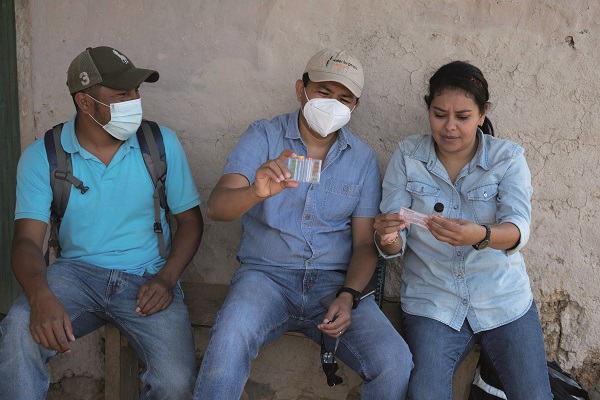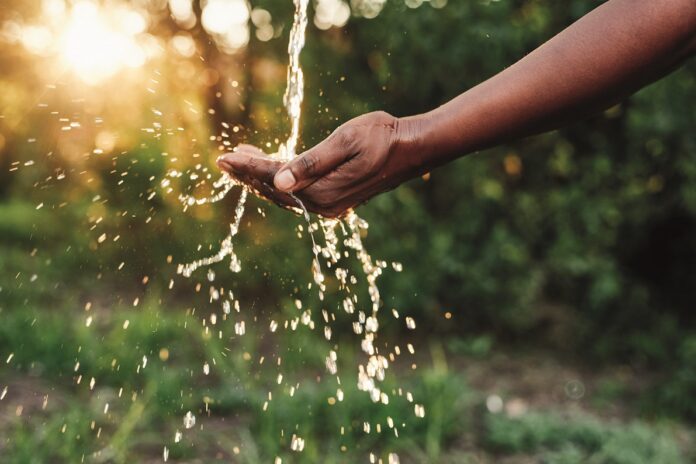In anticipation of a symposium in May to promote a systems-based approach, Patrick Moriarty makes the case for collaboration to secure progress.
The world is off-track for achieving the Sustainable Development Goal of safe water and safely managed sanitation for everyone, everywhere. This is particularly true in rural areas and in the poorest countries, but is also the case in informal settlements in towns and cities, and in middle income countries. The poor, in general, suffer most.
At its heart, this failure is political. Put simply, those in power do not see drinking water or sanitation as meriting serious expenditure of political capital and, therefore, do not provide the leadership needed to develop resilient, adaptable and sustainable water and sanitation systems. Current estimates suggest that an acceleration of between two- and four-times current progress is needed to achieve ‘clean water and sanitation for all’ by 2030, according to the WHO / UNICEF Joint Monitoring Programme.
In part, this is understandable. Developing countries’ governments have an impossible range of competing demands to address with their limited resources, and progress is needed fast. Yet, it is also puzzling. Clean drinking water and sanitation are human rights – but, more than this, they are fundamental building blocks of public health, human wellbeing, and economic growth. People who are chronically sick with diarrhoea or other sanitation-related ailments clog up health systems, miss out on education and are a drag on the economy.
Essentials for society
As countries face up to the implications of the climate crisis, it is clear that drinking water and sanitation services are crucial building blocks for societal resilience and adaptation. Cities without reliable access to drinking water will rapidly become unliveable; sewerage systems that are overwhelmed or destroyed during floods will (and do) become reservoirs of disease.
Against this background, in May this year IRC (the organisation I lead) and our alliance partners, Water for People and Water for Good, will host a major international symposium in The Hague, The Netherlands, to consider what is required to break out of the cycle of low priority and investment that is holding back progress. ‘All Systems Connect’ will take place just two months after the United Nations Water Conference, following on from the successful ‘All Systems Go!’ of 2019 and ‘All Systems Go Africa’, which took place in 2021.

While building on the ‘systems focus’ of these previous events, All Systems Connect will engage directly with the question of how we can raise water and sanitation up national political agendas. As part of that, we will look to expand our work on water and sanitation systems, linking to support and benefit similar efforts in sectors such as health, climate, and economic development.
Creating a systems agenda
All Systems Go! was a major turning point in championing a ‘systems agenda’ – an agenda that starts from an understanding that many of the challenges facing water and sanitation arise from their being treated as ‘infrastructure problems’ that, once solved through capital investment, can, for the most part, be left alone to look after themselves. Decades of failure have shown that this is not the case. Success is only achieved when water and sanitation are treated like other critical public services, such as healthcare or education, for which government fulfils its mandate by providing leadership, finance, and regulation, regardless of who provides the actual service.
Leadership is the key to success
Government leadership is particularly crucial in engaging with and providing a vision for the whole system: clarifying roles and addressing the critical areas of accountability. When looked at from a systems perspective, it is clear that sustainable water and sanitation services rely on a fairly limited number of building blocks (IRC identifies nine in total). These include: adequate institutions and clear rules of the game; reliable data; and appropriate finance.
Experience has taught us that this system cannot be created through a bottom-up approach alone, no matter how great the willingness of different actors may be. To create a resilient national water and sanitation system requires the sort of system-wide vision and imagination that only government can provide. This is not advocacy for public ownership and management of water and sanitation utilities, merely an acknowledgement that the private sector (or indeed communities) cannot work where there is no framework to support and direct their efforts.
Clear national vision is often lacking. Much water and sanitation provision, especially in the poorest countries and areas, is an anarchic free for all. International charities, philanthropists and bilateral donors step into a vacuum created by weak government leadership and often, in the name of innovation, deliver services with a bewildering variety of approaches. As a result, multiple models of service delivery (from self-supply to large utilities) jostle and compete, while rules and roles remain vague and contested.
There is, of course, nothing wrong with experimentation and innovation; indeed, they are essential in the face of climate change. However, innovation can only achieve its goals (and be taken to scale) where it explicitly feeds into existing systems – systems that exist and are capable of benefiting from innovation.
Against this background, All Systems Connect will bring together different ‘system actors’ from around the world: government leaders from national and local level; water and sanitation industry leaders; researchers; civil society; and development agencies. The focus will be on sharing experiences of what is working, in enabling national leadership, and supporting national systems change, with the aim of formulating an action agenda for systems strengthening for the next decade.

A collaborative approach
Participants will come from within and beyond water and sanitation – especially from health, climate, and economic development. As with All Systems Go! in 2019, the three days of the symposium will be a mix of presentations, workshops, panels and plenaries, all curated with the aim of strengthening existing, and creating new, networks between systems thinkers within and beyond water and sanitation. Following the UN conference, All Systems Connect will provide an excellent opportunity to pick up and work through the conference’s high-level discussions and action agenda.
Systems thinking and systems strengthening can sometimes seem far removed from the more technical focus of many IWA members. Yet, all those working in the sector will recognise the frustration that comes from knowing there is a better way to do things, yet seeing no avenue through which to develop that insight. In weak systems, decision-making is opaque and often contested. At a practical level, it may not even be clear who owns a particular set of assets – let alone who is accountable for their management or incentivised to, for example, adopt a cost-saving innovation. Systems strengthening is, therefore, all about creating the broad enabling environment in which all actors can work most effectively, doing so in such a way that the entire system – with all the different actors and factors that make it up – becomes more resilient and adaptable. While government leadership is essential, so too is the open-minded engagement of all other system actors. Only by working together to create a jointly owned vision of success can we work together, effectively, to deliver it. I am therefore delighted to take the opportunity to invite IWA members to join us in The Hague in May, and become part of the water, sanitation, and hygiene systems revolution.
The author:
Dr Patrick Moriarty is Chief Executive Officer of IRC.
More information
All Systems Connect 2023, www.ircwash.org/all-systems-connect-2023
All Systems Go 2019, www.thesourcemagazine.org/the-systems-imperative-for-sdg-wash-success
IRC’s systems approach, including the nine building blocks that make up a sustainable water, sanitation and hygiene system, is in numerous publications on IRC’s website and explained in several open access courses in IRC’s WASH Systems Academy (ircwash.org/wash-systems-academy).








